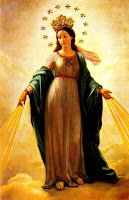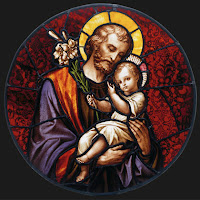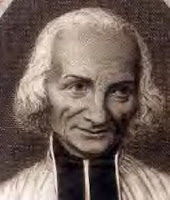18TH
SUNDAY IN ORDINARY TIME B
YEAR OF THE CLERGY
AND CONSECRATED PEOPLE
AUGUST 5, 2018
Jesus, I trust in you!
The people of Israel have
witnessed how with a powerful arm, the Lord liberated them from the slavery of
Egypt. They saw how the Red Sea was divided so that they can cross it on dry
ground with walls of water to their left and right. They saw how the soldiers
of Egypt who pursued them were drowned at sea when the waters collapsed on
them. Very impressive signs they saw and yet, as they walked to freedom, they
could not forget how they sat by their fleshpots and ate their fill of bread
when they were still in Egypt. They even complained to the Lord: “You had to
lead us into this desert to make the whole community die of famine!”
 So also did the people who came
to Capernaum in search of Jesus. They looked for him because they ate their
fill when Jesus multiplied bread and fish. The Lord knew their hearts and so he
said: “You are looking for me not because you saw signs but because you ate the
loaves and were filled.” Basically, we are always hungry for food and never do
we become satisfied. This “craving for food eventually expands to include other
things – clothes, cars, gadgets, houses, and wealth in all its forms. The irony
is that the more we accumulate these things, the hungrier we become.” (Fr.
Virgilio Ojoy, OP)
So also did the people who came
to Capernaum in search of Jesus. They looked for him because they ate their
fill when Jesus multiplied bread and fish. The Lord knew their hearts and so he
said: “You are looking for me not because you saw signs but because you ate the
loaves and were filled.” Basically, we are always hungry for food and never do
we become satisfied. This “craving for food eventually expands to include other
things – clothes, cars, gadgets, houses, and wealth in all its forms. The irony
is that the more we accumulate these things, the hungrier we become.” (Fr.
Virgilio Ojoy, OP)
Seeing our insatiable hunger, the
Lord tells us: “Do not work for food that perishes but for the food that
endures to eternal life, which the Son of Man will give you.” “It is foolish to
think that perishable material things can give us the happiness and the
satisfaction that we seek.” (Ojoy, OP) Jesus reminds us that there is a concern
greater than what to eat and what to wear. We are meant for eternal life.
Material things give us temporary satisfaction. Only God can satisfy the
deepest cravings of the human heart. Since the cravings of the human heart are
endless, only the One who is eternal can satisfy it. “To make us appreciate
more keenly the necessity to turn our eyes to eternal blessings, God has filled
our hearts with desires so vast and so magnificent that nothing in creation is
capable of satisfying them.” (St. John Vianney) Only in the Lord will we be
happy for all eternity. “Do you want to be happy? Fix your eyes on Heaven; it
is there that your hearts will find that which will satisfy them completely.”
The earthly food that we eat can
sustain us only from one meal to the next. The only food that can help us
endure to eternal life is the food that Jesus gives us. He gives us Himself.
“The Bread of God is that which comes down from heaven. I am the Bread of life.
He who comes to me will not hunger, and he who believes in me will never thirst
again.” For us to crave for this
heavenly food, we must “believe in the one (God) sent.” We must believe in
Jesus. “You must no longer live as Gentiles do, in the futility of their
minds…” Learn Christ as truth is in Jesus. To believe in Jesus is to be renewed
in the spirit of our minds: to see beyond the limits of this material world
into the invisible and eternal world that Christ reveals to us. It is only when
we believe in Jesus that we will beg Him: “Give us this bread always.” To
hunger for God is to crave for the Eucharist. “Taste and see that the Lord is
good.” Taste him. Eat this bread from heaven and you will hunger no more.
Believe in Jesus and you will thirst no more.
O Mary conceived without sin,
pray for us who have recourse to thee!
























